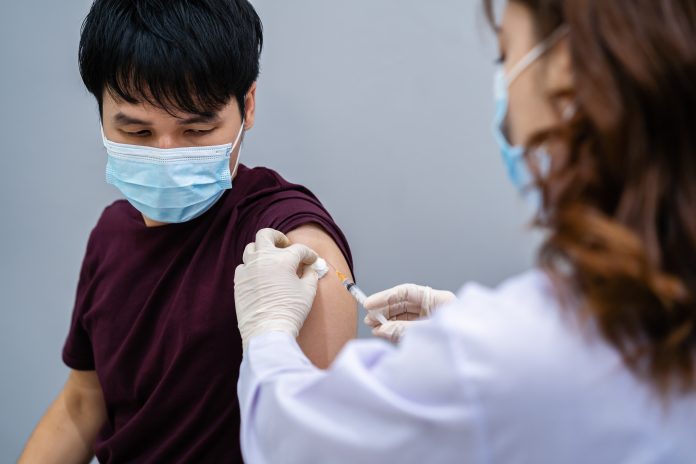People living with HIV can now get a COVID vaccine without having to tell the doctor their status – right now, stigma is holding some back from coming forward to get their vaccination
Across the world, around 1.7 million people became newly infected with HIV in 2019. This number does not include the cases that are never registered or documented.
The HIV epidemic continues to be a medical crisis in 2021. However, it is also a secretive and highly-stigmatised crisis.
This stigma is so pervasive that in the UK, individuals with HIV feel unable to tell their status to a doctor and resultantly wait further back in the COVID vaccine line. COVID-19 poses a higher risk for those with HIV, so this stigma-influenced silence could have severe consequences.
The i newspaper obtained new guidelines that make it possible for a person with HIV to get the COVID vaccine without telling their GP about their situation.
Local HIV clinics can now arrange access to the COVID-19 vaccine for those uncomfortable with discussing this element of their health with their GP.
It seems that one in five people diagnosed with HIV are worried about discrimination and resultantly keep the information from their doctor.
Head of leading HIV charity the Terrence Higgins Trust, Ian Green, explained: “Some may be surprised to hear that a significant number of people living with HIV feel unable to talk to their GP about their HIV status, but this underlines how much stigma still surrounds the virus even in 2021.
“This is great news and the right decision from the NHS as it means people living with HIV will be able to take up the potentially life-saving Covid-19 vaccine at their earliest opportunity.
HIV and unequal access to healthcare, an ongoing issue
The Lancet recently published research that looks at how those living with HIV face other intersecting factors that decide their access to appropriate healthcare. They found that Black people are 13% of the US population, and 43% of HIV deaths in 2018.
Dr Errol Fields, Johns Hopkins University School of Medicine, highlighted “racial disparities” as a huge driver of unequal outcomes when it comes to HIV.
There are ways to live with HIV, but these ways are not available to all socio-economic classes, genders and ethnicities. One of the most HIV-positive groups in low-to-middle income countries are young girls and women, who are often forced to engage in unsafe sex as currency for resources like food and water.
‘We need to expand care’
“Scientific advances have transformed the course of HIV in individuals. To transform the course of the epidemic, we need to expand care and prevention strategically to those who need it most,” said Nora D Volkow, Director of the National Institute on Drug Abuse (NIDA).
Testing earlier is a key preventative measure to protect individuals with HIV. Currently, advocacy groups in Europe are pushing for an expanded testing network.
“That means taking a hard look at who has been excluded from services and take immediate steps to overcome systemic barriers like stigma, structural racism, and other forms of discrimination to connect hardly reached people – such as individuals with substance use disorders – with HIV testing, prevention, and treatment.”
‘Get the best possible healthcare’, says NHS LGBT advisor
This move by the NHS to enable those with HIV to access this essential health service is welcomed by healthcare advocacy groups across the UK.
NHS England’s LGBT health advisor Dr Michael Brady further asked all those living with HIV to “register with a GP and make them aware of their HIV diagnosis so they get the best possible health care.”












Having been living an HIV positive life for 17years and not taking ARVs and my CD4 count is 650
Am I in a position to get vaccinated for COVID-19